Come celebrate with us the Day to the Earth!
“I am myself and my circumstance, if I do not save it I will not save myself.” (José Ortega y Gasset. 1883-1955)»
Since 1970, The United Nations has dedicated April twenty-second to the celebration of Earth Day all across the world. The purpose of this day is to recognize and highlight biologic diversity, not only due to its economic value, but also because of the fact that it is a determining factor in social, cultural and spiritual element in cultures worldwide.
The biologic diversity that surrounds us defines a vast part of our identity and the connection we have to the places we were born in and where we grow up. It defines things as basic as our diet, as well as the very words through which we interpret the universe and everything that surrounds us. The environment we grow up in teaches us who we are and our place in the world, it reminds us where we come from, the people that preceded us and the way our ancestors connected to the Earth.
The stories of our grandparents reminding us of the plants that heal us, which plants are fundamental ingredients in our families traditional dishes, the plants that adorn the graves of our deceased loved ones…the way the birds around us sing and the meaning these songs have to us are intrinsic parts of the way we build our individual and collective identities. Without these we would be lost in the space we inhabit, without a clue of the relationships that have been nurtured for thousands of years between humankind and the biodiversity with which we share our lives.
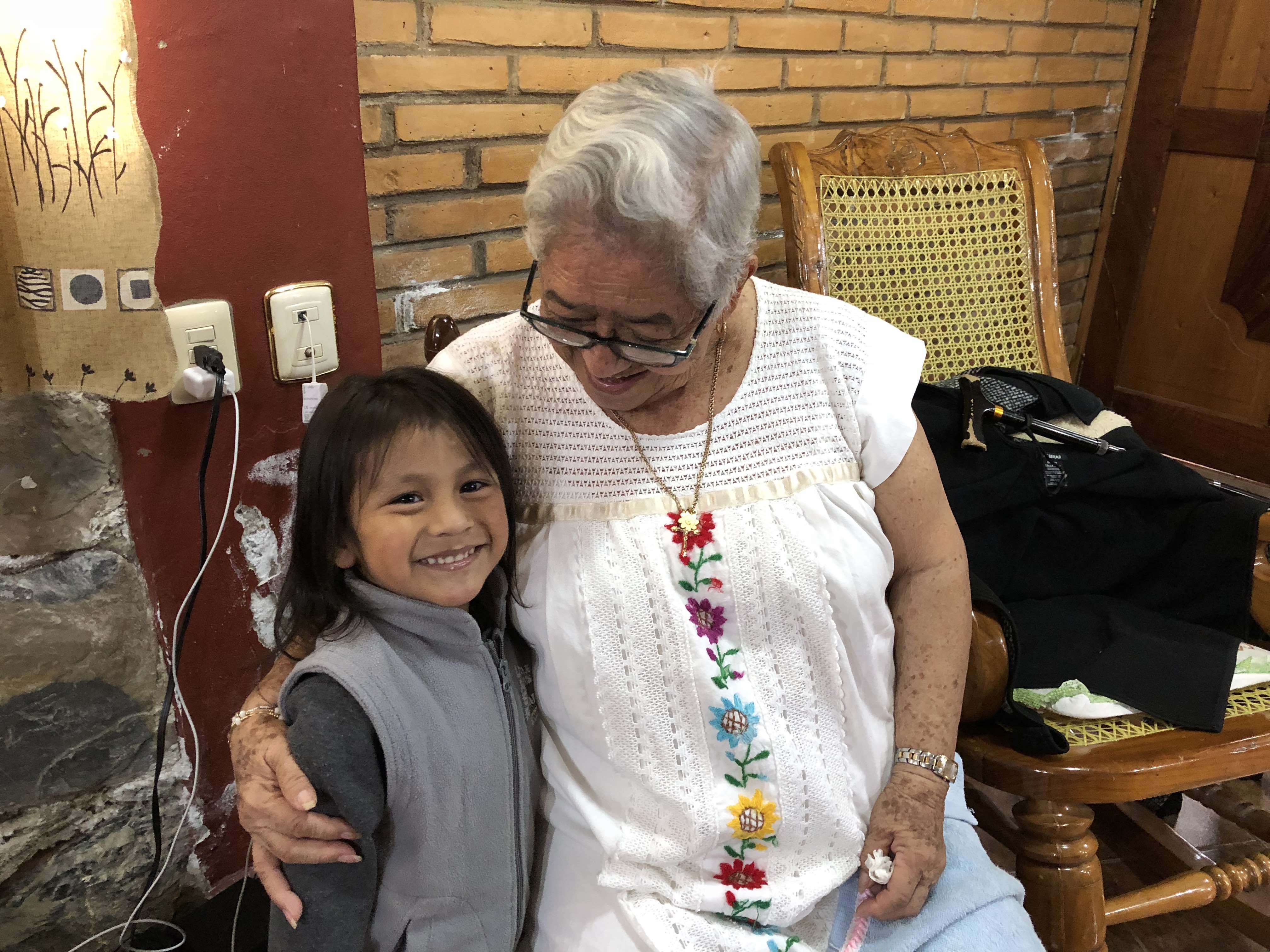
At present, these relationships are threatened by a series of exterior elements that threaten biocultural harmony. Whether it’s global warming (that modifies cultivation patterns for plants and animal migration), mass abandonment of the fields by youth (due to the fact that they’d rather migrate to big cities than deal with increasing obstacles they would face if they remain farming), and the loss of traditions and indigenous languages (older generations no longer want to teach their children, for fear of the discrimination they might face).
Earth Day is an opportunity to advocate for the preservation of nature as well as the relationships every culture around the world has established with the biodiversity of the regions they inhabit.
In this context, through the use of digital information technologies, the work group Chjota én níma and Universidad Veracruzana are registering some examples of the importance nature has in the mazatec culture within the Sierra Madre Oriental mountain range, as well as the way the mazatec have perceived climate change and how they have adapted their agricultural production to these new conditions.
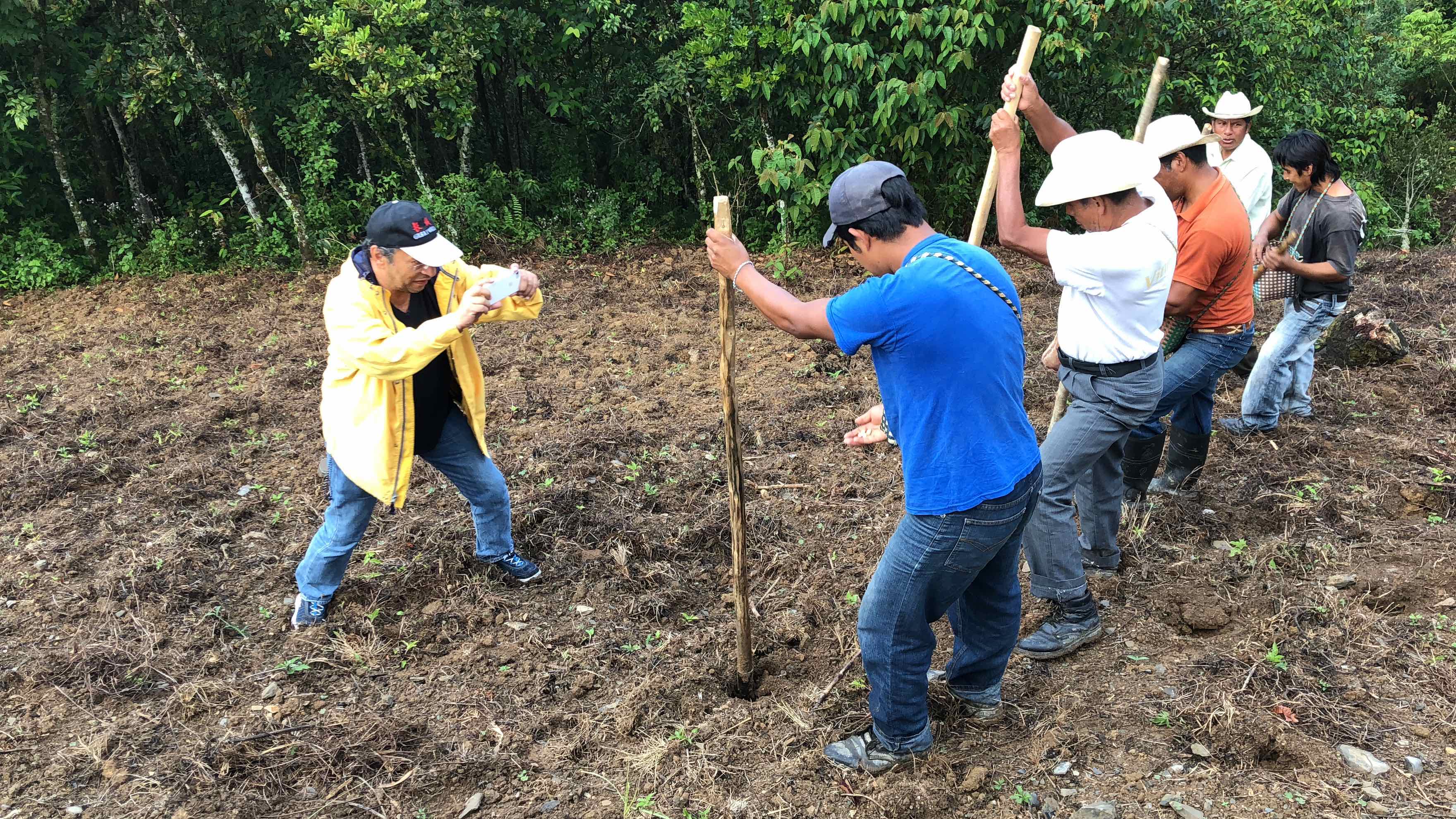
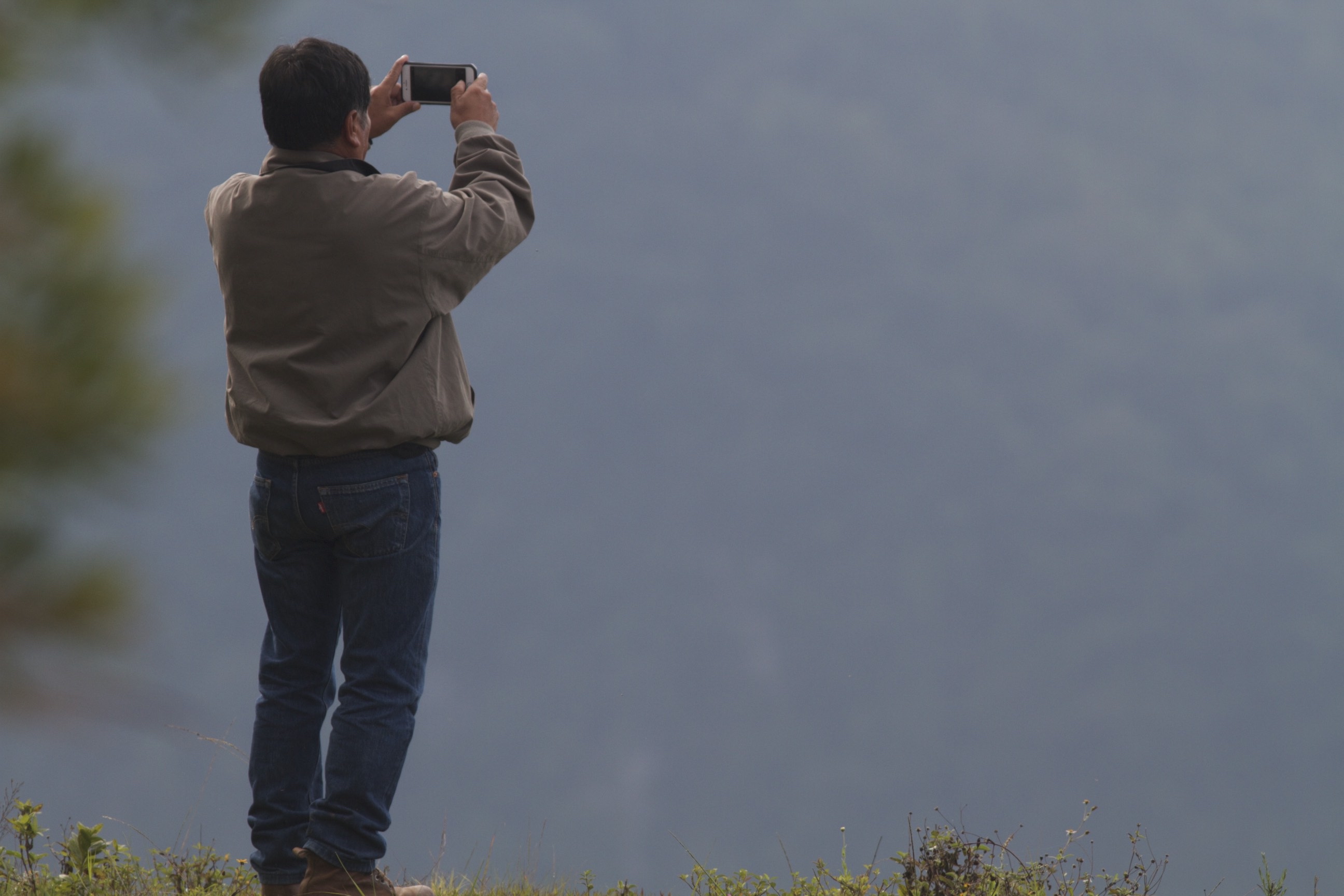
Maize is the central axis around which nourishment and cosmovision are articulated for the mazatec. It is not only the basis of their cuisine, but a basic element of their origin stories about humankind. Proof of its importance is the great variety of maize that is cultivated in the mountainous areas of Oaxaca…distinct and unique in size, color and flavor.
This is why, for this years Earth Day celebration we will present the documentary Najmé, (which is the mazatec word for maize) which represents a window into the inherent relationship between this crop and mazatec culture. A relationship that has resisted climate change, pressure within the agricultural market to produce other crops and the introduction of transgenic seeds to the country.
The documentary is in its original language; mazatec, because it is mainly a register from the mazatec for the mazatec, with the objective of producing a chronicle that may serve the community to remember and preserve this part of their history. Nonetheless, it is also of great importance for the general public, as it allows us to observe the resilience of humans to new biologic conditions. It grants us a hint of hope in the light of desolate news presented daily about the imminence of natural disasters as a consequence of global warming.
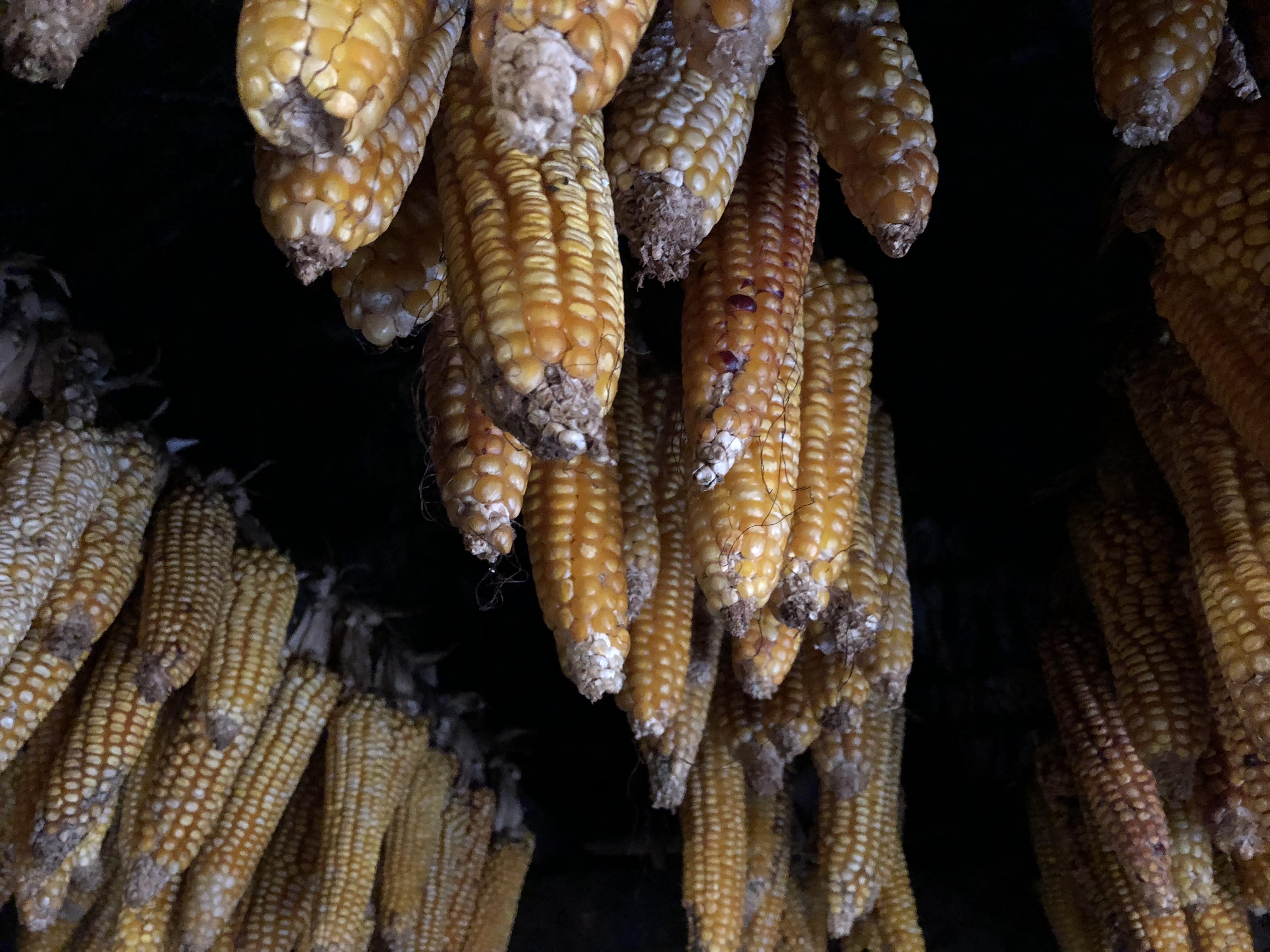
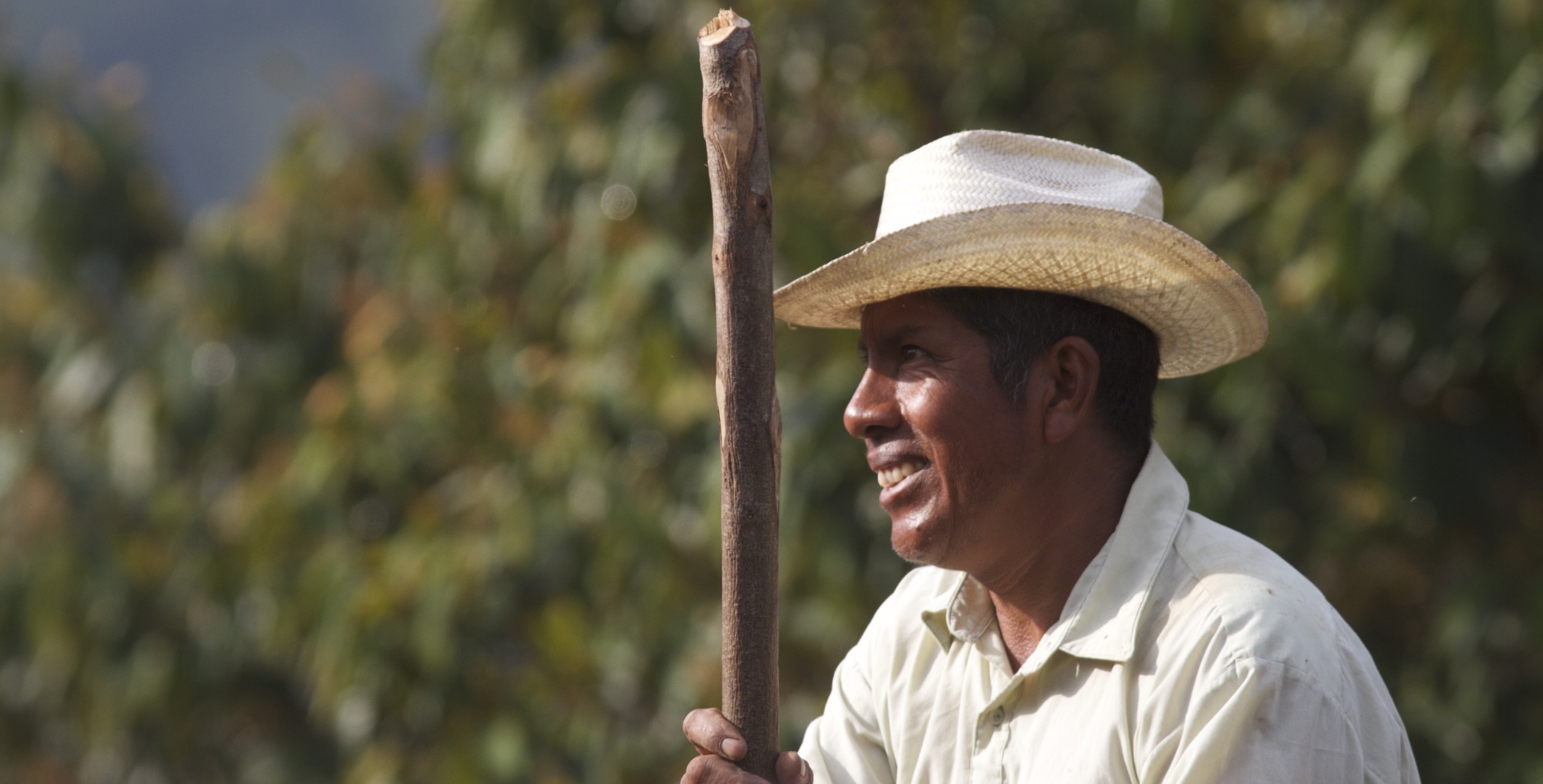
Najmé
Watch now!

